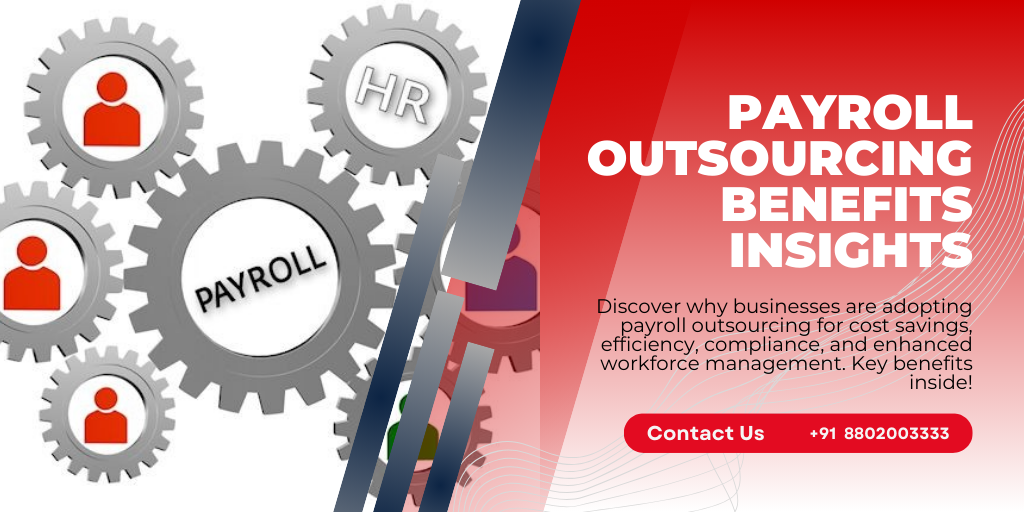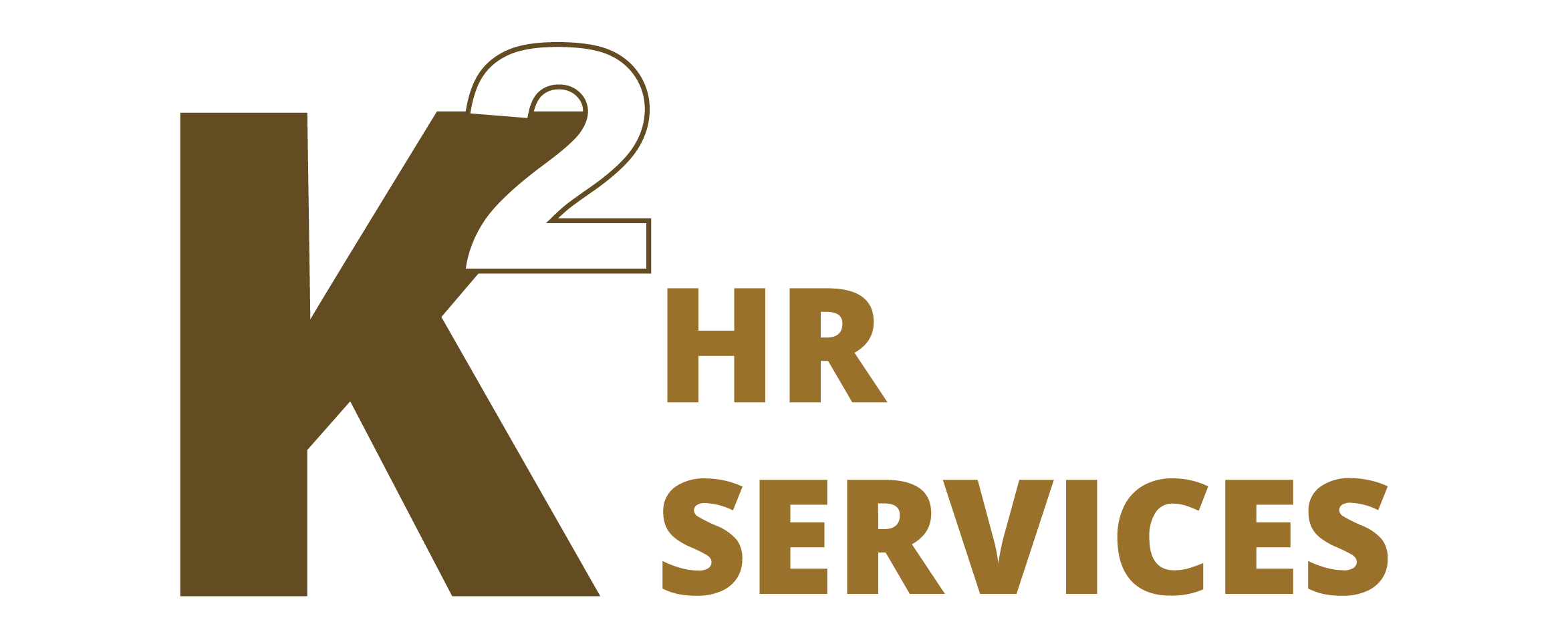Cette entreprise n'a pas de postes à pourvoir
About Us
Outsourcing Payroll: Maximize Efficiency And Minimize Expenses
✔ Outsourcing payroll may reduce administrative problems, save time, and ensure compliance with tax laws.
✔ Cost cost savings vary from 18%-35% typically compared to in-house payroll processing.
✔ Payroll service providers handle wage calculations, tax filings, direct deposits, advantages reductions, and more.
✔ Businesses of all sizes advantage, specifically those without dedicated payroll staff.
✔ Choosing the right payroll service depends upon business size, intricacy, and need for combination with existing systems.

Every other Friday, Lisa braced herself for what had basically end up being a continuous source of stress: payroll. As the office supervisor for a growing home services company, she wore numerous hats: scheduling tasks, managing billings, handling HR tasks, and more. Payroll was simply one more duty on her overruning plate, and despite her best efforts, something always appeared to go incorrect.

Last pay period, she overestimated overtime for 2 professionals, resulting in a payroll correction that took hours to fix. The month in the past, a tax filing due date slipped through the fractures, resulting in an expensive late cost. And then there were the consistent questions from employees about their paychecks – was my reward included? Why are my reductions different today? Exists still time to remedy my punch card? When will I receive my W-2?
Lisa’s tension level was through the roofing system. Something had to change. Accordingly, Lisa began exploring her choices. What if the company had somebody else deal with payroll? By handing off payroll to a professional company, or, at least, upgrading their software application, she might remove the threat of errors, guarantee compliance with tax laws, and maximize hours each week to focus on running the service.
Does your payroll journey simulate Lisa’s? Is payroll a challenge that looms at the end of every other week? Luckily, you’re not alone. In this post, we’ll check out how contracting out payroll works, the benefits it uses, and whether it’s the right relocation for your organization.
Outsourcing payroll is the practice of handing off payroll-related jobs to a third-party supplier who specializes in processing salaries, taxes, and other compensation-related obligations. Instead of managing payroll manually – or managing several software application services – businesses can count on experts to guarantee employees are paid properly and on time while staying compliant with tax laws.
Payroll suppliers deal with a variety of tasks, consisting of:
✅ Processing employee earnings and contractor payments;
✅ Calculating and submitting payroll taxes;
✅ Managing direct deposits and paper checks;
✅ Handling reductions, garnishments, and advantages contributions; and
✅ Staying up to date with ever-changing labor laws and tax rates.
Approximately 61% of business outsource their payroll procedures. The choice to outsource the whole function or segment out parts, such as tax filings or direct deposit management, mostly depends upon company size, payroll complexity, and internal resources.
For larger organizations with staff members across multiple states, payroll outsourcing can simplify compliance with various tax laws and guidelines. But small and mid-sized organizations likewise benefit – specifically those without a dedicated payroll expert. Given that payroll laws frequently alter, contracting out ensures businesses remain compliant without needing to continuously monitor updates.
Years ago, it was unusual for companies to turn over payroll to an outside supplier. But today, advances in payroll innovation make contracting out an affordable and effective solution. Whether you need full-service payroll assistance or simply assist with particular jobs, contracting out can free up important time, minimize administrative headaches, and offer service owners assurance. Statistics back this up. According to a PwC study, companies that outsource their payroll works experience expense reductions of 18%-35%, typically.
Is contracting out payroll the right option for your business? In the next section, we’ll explore the crucial advantages and potential drawbacks to assist you choose. If not, a best practice might consist of updating your internal software application. While we’re biased, a solution like OnTheClock enables you to encapsulate time tracking, scheduling, and payroll in one platform. No more third-party costs, delays, or errors!
Don’t let taxes get you down. Make payroll easy with OnTheClock!
Your trouble-free solution for payroll.
The Benefits of Outsourcing Payroll
Having your staff total payroll may look like a cost-savings procedure; nevertheless, the reality is that it’s often lengthy, complicated, and vulnerable to costly errors. Outsourcing payroll provides companies a streamlined, safe, and affordable service. Here’s how it can benefit your business:
Save Time and Boost Productivity: Payroll isn’t practically transferring profits – it includes tracking hours, calculating taxes, handling advantages reductions, and guaranteeing compliance with ever-changing guidelines. For small organizations, this obligation frequently falls on a bachelor or a small HR group, pulling focus away from strategic efforts. Outsourcing payroll gets rid of these time-consuming jobs, releasing up your group to focus on development and staff member engagement.
Reduce Payroll Costs: Many little and mid-sized services discover that outsourcing payroll is more cost-effective than maintaining an in-house payroll team. The costs related to payroll software, worker training, tax filing, and compliance management can accumulate rapidly. By outsourcing, business can access expert payroll services at a predictable monthly expense – frequently less than the expense of working with a full-time payroll professional.
Minimize Errors and Ensure Compliance: Payroll mistakes aren’t just discouraging – they can result in considerable punitive damages. From overestimating tax withholdings to missing deadlines, errors can activate audits, fines, and dissatisfied workers. Payroll suppliers specialize in tax compliance, remaining up to date on federal, state, and regional regulations to make sure accurate filings and prompt payments.
Enhance Data Security: Payroll data includes sensitive employee details, such as Social Security numbers and savings account details. Cybersecurity dangers and internal fraud dangers make payroll security a top priority. Professional payroll companies invest in innovative encryption, secure cloud storage, and multifactor authentication to keep your company’s monetary data safe.
Avoid Payroll Disruptions: If your in-house payroll specialist takes a trip, gets sick, or leaves the business, payroll operations can be tossed into chaos. Outsourcing provides connection and dependability, ensuring payroll is processed accurately and on time, whenever.
Simplify Direct Deposit and Benefits Integration: Many small businesses struggle to establish direct deposit or properly incorporate payroll with benefits administration. Payroll companies streamline this procedure, making sure workers are paid promptly and deductions for advantages like medical insurance and retirement plans are managed properly.
Scale With Your Business: As your company grows, payroll intricacy increases. More staff members indicate more tax obligations, benefit options, and compliance requirements. A payroll company can scale with your organization, adjusting to new difficulties without requiring you to work with extra HR workers.
The Downsides of Outsourcing Payroll
While outsourcing payroll can conserve time and decrease administrative problems, it’s not without its obstacles. Before devoting to an external company, it’s important to weigh the prospective drawbacks and figure out whether the compromises line up with your company’s requirements.
Loss of Control Over Payroll Processes: When you contract out payroll, you relinquish direct oversight of vital payroll functions. While automation and dedicated payroll professionals can minimize mistakes, you may have restricted visibility into the process. If an error occurs, such as an inaccurate income or a missed tax filing, it could take longer to fix than if payroll were handled internal. Additionally, you may need to depend on consumer assistance groups with differing levels of responsiveness rather than making immediate adjustments yourself.
Data Security Concerns: Outsourcing requires sharing sensitive employee info, including Social Security numbers, salaries, and tax details, with a 3rd party. While many payroll companies execute robust security measures, information breaches stay a risk. Additionally, because you do not manage their security protocols, you’re relying on their capability to safeguard staff member information. Any lapse in security might result in identity theft, compliance issues, or financial losses.
Limited Customization and Flexibility: Payroll service providers normally use standardized services that might not perfectly align with your business’s needs. If your service has distinct payroll structures, such as specific bonus offers, commissions, or industry-specific reductions, adapting to a third-party system can be tough. Furthermore, last-minute payroll modifications, such as adding a cost repayment or remedying a tax code, may not be as smooth as they would be with an internal payroll group.
Potential Hidden Costs: While outsourcing can appear affordable, expenses can build up beyond the base subscription fee. Some suppliers charge extra for year-end tax filings, compliance updates, off-cycle payroll runs, or combination with other business software. If your company needs frequent payroll modifications or personalized reporting, these additional costs can rapidly go beyond the preliminary budget. Employee Experience Challenges: When payroll is contracted out, staff members typically have to contact a third-party service provider for payroll-related concerns or problems. This can develop a detach, as employees may fight with impersonal customer support, long haul times, or irregular support quality. Unlike an internal payroll group that comprehends company culture and policies, an outsourced provider might not provide the very same level of familiarity or responsiveness.
Dependency on Provider Stability: Relying on an external company for payroll indicates your business is vulnerable to its functional stability. If the company experiences financial difficulty, technical failures, or abrupt service disturbances, your payroll process might be impacted. In severe cases, a service provider closing down all of a sudden could lead to lost payroll information and considerable functional headaches.
The Different Types of Payroll Services
Not all payroll outsourcing services are created equivalent. Businesses have different requirements, and payroll companies use numerous levels of service to accommodate them. Whether you want to hand off whatever or keep some control, there’s an outsourcing model that fits your company. Here are the primary types of outsourced payroll services:
1. Full-Service Payroll Outsourcing: If you’re searching for an entirely hands-off technique, full-service payroll outsourcing is the way to go. This kind of service provider handles every aspect of payroll, including:
– Calculating earnings and reductions;
– Managing tax filings and compliance;
– Administering worker advantages; and
– Handling direct deposits and paychecks.
With a full-service service provider, all you need to do is supply employee data, such as hours worked and wage updates. While this choice is the most convenient, it also tends to be the most costly. Plus, businesses need a trustworthy system for sharing precise payroll info on time.
2. Partial Payroll Outsourcing: For services that choose to retain some control over payroll but offload complex jobs, partial outsourcing is a terrific happy medium. Companies might choose to:
– Manage employee time tracking and participation in-house while contracting out tax filing;
– Handle direct deposit themselves but contract out compliance and reporting; and
– Keep payroll processing internal however use an external provider for year-end tax return.
This model enables companies to reduce their administrative burden while keeping oversight on critical payroll functions.
3. Cloud-Based Payroll Services: Cloud-based payroll contracting out offers versatility and real-time access to payroll data. These services:
– Automate payroll estimations and tax filings;
– Allow staff members to gain access to pay stubs and tax documents through self-service portals; and
– Integrate with accounting and HR software.
Since cloud payroll solutions are web-based, organizations can manage payroll from anywhere. This option is perfect for remote groups and growing companies that require scalability.
4. International Payroll Outsourcing: For business with a global workforce, international payroll service providers simplify the intricacies of handling employees across different countries. These services:
– Ensure compliance with regional tax laws and labor regulations;
– Handle multi-currency payroll processing; and
– Manage cross-border payroll tax filings.

Outsourcing international payroll can avoid expensive compliance errors while streamlining payments for abroad employees.
5. DIY Payroll with Provider Support: Some payroll providers provide a hybrid technique where services handle most payroll jobs however utilize software and tools supplied by the contracting out company. This design is perfect for business that:
– Want to keep direct control over payroll processing;
– Need automation tools to simplify calculations; and
– Prefer professional assistance for compliance questions.
This method combines the versatility of internal payroll with the security of expert guidance.
How to Choose the Proper Payroll Partner
The best payroll service depends upon your business’s size, structure, and requires. If you want a completely worry-free experience, full-service outsourcing might be the best option. If you require versatility, partial or cloud-based options might be a much better fit. Here’s a list of actions you must think about when picking the ideal payroll supplier.
Define Your Payroll Needs: Before comparing companies, outline precisely what you need from a payroll service. Are you trying to find full-service payroll that manages everything, or do you prefer partial payroll outsourcing where you retain control over specific tasks? Consider features like direct deposit, tax filing, benefits administration, and compliance tracking. If your service operates in several locations or utilizes remote workers, you might likewise require multistate or worldwide payroll capabilities.
Integration with Existing Tools: A smooth payroll procedure depends upon how well your payroll supplier integrates with your existing systems. Try to find solutions that get in touch with your scheduling software, HR platforms, and time tracking tools. Proper integration can reduce manual information entry, lessen errors, and enhance overall effectiveness.
Compliance and Tax Expertise: Payroll is more than just paying staff members – it involves tax filings, deductions, and compliance with labor laws. A reputable payroll partner must keep up to date with changes in tax regulations and guarantee accurate reporting to avoid costly penalties. Ask prospective suppliers about their compliance procedures and how they handle updates to federal, state, and regional tax laws.
Pricing Structure and Value: Cost is a significant aspect when picking a payroll provider, however the least expensive choice isn’t always the very best. Compare prices models, as some providers charge a flat regular monthly cost, while others expense per pay period or per employee. Many payroll options, including OnTheClock Payroll, tend to be around $40 per month and $6 per worker. Make certain to account for any extra expenses for tax filings, direct deposits, or HR add-ons. The very best payroll partner provides a balance of cost and value, conserving you time and lowering payroll-related headaches.
Customer Support and Service Quality: Payroll errors can be difficult, so having access to responsive client assistance is important. Evaluate the supplier’s service options: Do they use live phone support, chat, or email help? Check online reviews and testimonials to determine their reputation for customer care. A payroll partner with strong support can quickly solve issues and keep payroll running efficiently.
Security and Data Protection: Payroll data consists of delicate staff member information, making security a top concern. Ensure your payroll service provider utilizes strong file encryption, multi-factor authentication, and protected servers to protect against cyber risks. Inquire about their information backup policies and how they handle security breaches.
Scalability and Flexibility: Your payroll needs might progress as your service grows. Choose a company that can scale with you, whether you’re including brand-new employees, broadening to several places, or requiring additional functions like benefits management or time tracking. A flexible payroll partner will accommodate changes without requiring a significant overhaul of your payroll process.
Service Level Agreements (SLAs): A reputable payroll service provider should provide clear service level agreements (SLAs) that describe crucial efficiency expectations, such as payroll precision, processing times, and compliance warranties. These arrangements help guarantee responsibility and provide a benchmark for assessing service quality.
Reputation and Industry Experience: Finally, research study the company’s track record. Try to find consumer testimonials, market certifications, and case studies that demonstrate their proficiency. If possible, choose a payroll partner with experience in your market, as they’ll recognize with sector-specific payroll requirements and compliance challenges.
Outsourcing Payroll: Common Challenges and Best Practices
Outsourcing payroll can be a game-changer for companies, reducing administrative work, enhancing accuracy, and making sure compliance. However, handing over such an essential function features its own set of obstacles. If not managed correctly, companies can face communication breakdowns, security dangers, and compliance issues. Below are some typical hurdles businesses encounter when contracting out payroll and some steps to help overcome them.
Loss of Control Over Payroll Processes
When you contract out payroll, you give up direct oversight of payroll computations, tax filings, and staff member payments. This can result in concerns about openness, precision, and responsiveness.
– Choose a service provider that uses real-time reporting and payroll dashboards so you can keep an eye on deals.
– Establish clear expectations from the beginning, consisting of deadlines, information precision requirements, and escalation procedures.
– payroll know-how to evaluate reports and make sure payroll precision.
Communication Breakdowns
An absence of proper interaction between your company and the payroll supplier can result in mistakes, hold-ups, and frustration. Misunderstandings about information submissions, reporting requirements, and employee categories can trigger considerable interruptions.
– Designate a devoted point of contact on both sides to ensure smooth communication.
– Establish regular check-ins to review payroll procedures, resolve problems, and supply updates.
– Use cloud-based payroll platforms that enable real-time access to reports and automated notices.
Data Security and Privacy Risks
Payroll information contains extremely delicate employee information, consisting of Social Security numbers, bank information, and wage records. A security breach can cause identity theft, monetary scams, and legal liabilities.
– Work with a provider that uses sophisticated file encryption, multifactor authentication, and safe and secure data storage.
– Limit access to payroll data by specifying user roles and approvals within the system.
– Regularly review the company’s security policies and require compliance with industry requirements like SOC 2 and GDPR.
Compliance and Regulatory Risks
Payroll laws and tax regulations regularly change, and noncompliance can lead to hefty fines and penalties. If your payroll company stops working to stay upgraded, your organization might be at danger.
– Partner with a provider that focuses on your market and is skilled in federal, state, and regional tax laws.
– Request regular compliance audits to ensure payroll tax filings and employee classifications are precise.
– Maintain internal oversight by staying notified about payroll regulations that impact your organization.
Hidden Fees and Unexpected Costs
Some payroll service providers charge extra for services like tax filings, compliance updates, and software application upgrades. Without a clear understanding of costs, companies can deal with spending plan overruns.
– Review the agreement thoroughly before finalizing and clarify all expenses, including per-payroll costs, year-end reporting charges, and add-on services.
– Choose a provider with transparent, all-inclusive pricing to avoid unanticipated expenses.
– Regularly evaluate whether the payroll service is cost-efficient for your business.
Integration Challenges
If your payroll company’s system doesn’t integrate smoothly with your existing accounting, HR, or time tracking software application, it can result in inefficiencies and manual information entry mistakes.
How to Overcome It
– Select a provider that uses smooth combination with your existing tools, such as QuickBooks or OnTheClock.
– Test the combination before totally transitioning to outsourced payroll to recognize potential concerns.
– Work closely with your provider to customize data exports and imports for accuracy and effectiveness.
Final Thoughts

Lisa’s story is all too familiar to many organization owners and workplace managers. Payroll errors, compliance worries, and continuous interruptions can turn payday into a source of stress rather of a simple procedure. By contracting out payroll, Lisa took control of her time, decreased errors, and guaranteed her team was paid accurately and on time.
If payroll has actually become a problem for your business, it might be time to check out a much better option. OnTheClock Payroll streamlines the procedure, so you can concentrate on running your service – not worrying over paychecks. Ready to streamline payroll? Try OnTheClock Payroll today and let us handle the heavy lifting so that you can concentrate on what matters most: growing your business!




